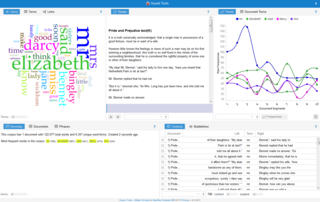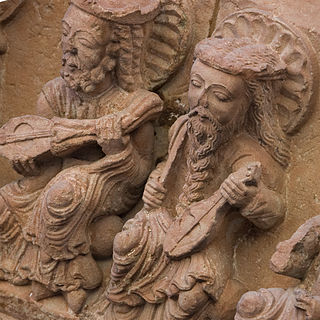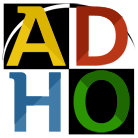Related Research Articles
The Association for Computing Machinery (ACM) is a US-based international learned society for computing. It was founded in 1947 and is the world's largest scientific and educational computing society. The ACM is a non-profit professional membership group, claiming nearly 110,000 student and professional members as of 2022. Its headquarters are in New York City.

The Text Encoding Initiative (TEI) is a text-centric community of practice in the academic field of digital humanities, operating continuously since the 1980s. The community currently runs a mailing list, meetings and conference series, and maintains the TEI technical standard, a journal, a wiki, a GitHub repository and a toolchain.

Roberto Busa was an Italian Jesuit priest and one of the pioneers in the usage of computers for linguistic and literary analysis. He was the author of the Index Thomisticus, a complete lemmatization of the works of Saint Thomas Aquinas and of a few related authors.
Stylometry is the application of the study of linguistic style, usually to written language. It has also been applied successfully to music, paintings, and chess. Another conceptualization defines it as the linguistic discipline that evaluates an author's style through the application of statistical analysis to a body of their work.

Digital humanities (DH) is an area of scholarly activity at the intersection of computing or digital technologies and the disciplines of the humanities. It includes the systematic use of digital resources in the humanities, as well as the analysis of their application. DH can be defined as new ways of doing scholarship that involve collaborative, transdisciplinary, and computationally engaged research, teaching, and publishing. It brings digital tools and methods to the study of the humanities with the recognition that the printed word is no longer the main medium for knowledge production and distribution.
Oxford Text Archive (OTA) is an archive of electronic texts and other literary and language resources which have been created, collected and distributed for the purpose of research into literary and linguistic topics at the University of Oxford, England.
Humanist is an international electronic seminar on humanities computing and the digital humanities, in the form of a long-running electronic mailing list and its associated archive. The primary aim of Humanist is to provide a forum for discussion of intellectual, scholarly, pedagogical, and social issues and for exchange of information among members.
The Canadian Society for Digital Humanities is a Canadian scholarly association. Its full name is Society for Digital Humanities/Société canadienne des humanités numériques (CSDH-SCHN). The CSDH-SCHN was founded as the COCH/COSH or Consortium for Computers in the Humanities/ Consortium pour ordinateurs en sciences humaines in 1986. The organization changed its name to the Society for Digital Humanities/Société pour l'étude des médias interactifs (SDH/SEMI), but became CSDH-SCHN after 2007, when it was enfranchised by the Alliance of Digital Humanities Organizations.

Digital Medievalist is an academic project and community-building organization for those who are interested in the use of computers and computational techniques in the academic field of medieval studies, a sub-field of digital humanities.
Steven J DeRose is a computer scientist noted for his contributions to Computational Linguistics and to key standards related to document processing, mostly around ISO's Standard Generalized Markup Language (SGML) and W3C's Extensible Markup Language (XML).

The Alliance of Digital Humanities Organizations (ADHO) is a digital humanities umbrella organization formed in 2005 to coordinate the activities of several regional DH organizations, referred to as constituent organizations. ADHO's constituent organizations are the European Association for Digital Humanities (EADH), the Association for Computers and the Humanities (ACH), the Canadian Society for Digital Humanities (CSDH/SCHN), centerNet, the Australasian Association for Digital Humanities (aaDH), the Japanese Association for Digital Humanities (JADH), Humanistica, the french-speaking association for Digital Humanities, and the Taiwanese Association for Digital Humanities (TADH), Digital Humanities Alliance for research and teaching innovations (DHARTI)from india etc.
The Digital Humanities conference is an academic conference for the field of digital humanities. It is hosted by Alliance of Digital Humanities Organizations and has been held annually since 1989.
Digital Scholarship in the Humanities is a peer-reviewed academic journal of the European Association for Digital Humanities that covers all aspects of computing and information technology applied to Arts and Humanities research. It is one of the main journals in the field of Digital Humanities. The journal is published by Oxford University Press. The journal was formerly known as Literary and Linguistic Computing, but was renamed to emphasise a broadening in its subject focus beyond literary studies.

The European Association for Digital Humanities (EADH), formerly known as the Association for Literary and Linguistic Computing (ALLC), is a digital humanities organisation founded in London in 1973. Its purpose is to promote the advancement of education in the digital humanities through the development and use of computational methods in research and teaching in the Humanities and related disciplines, especially literary and linguistic computing. In 2005, the Association joined the Alliance of Digital Humanities Organizations (ADHO).
COCOA was an early text file utility and associated file format for digital humanities, then known as humanities computing. It was approximately 4000 punched cards of FORTRAN and created in the late 1960s and early 1970s at University College London and the Atlas Computer Laboratory in Harwell, Oxfordshire. Functionality included word-counting and concordance building.
Susan Hockey is an Emeritus Professor of Library and Information Studies at University College London. She has written about the history of digital humanities, the development of text analysis applications, electronic textual mark-up, teaching computing in the humanities, and the role of libraries in managing digital resources. In 2014, University College London created a Digital Humanities lecture series in her honour.
Lou Burnard is an internationally recognised expert in digital humanities, particularly in the area of text encoding and digital libraries. He was assistant director of Oxford University Computing Services (OUCS) from 2001 to September 2010 where he officially retired from OUCS. Prior to that, he was manager of the Humanities Computing Unit at OUCS for five years. He has worked in ICT support for research in the humanities since the 1990s. He was one of the founding editors of the Text Encoding Initiative (TEI) and continues to play an active part in its maintenance and development, as a consultant to the TEI Technical Council and as an elected TEI board member. He has played a key role in the establishment of many other key activities and initiatives in this area, such as the UK Arts and Humanities Data Service, and the British National Corpus and has published and lectured widely. Since 2008 he has also worked as a Member of the Conseil Scientifique for the CNRS-funded "Adonis" TGE.
Harold Short is Emeritus Professor of King's College London. He founded and directed the Centre for Computing in the Humanities until his retirement (2010). He was involved in the development with Willard McCarty of the world's first PhD programme in Digital Humanities (2005), and three MA programmes: Digital Humanities, Digital Culture and Society, and Digital Asset Management.

Lorna M. Hughes has been Professor in Digital Humanities at the University of Glasgow since 2015. From 2016 to 2019, she oversaw the redevelopment of the Information Studies subject area The re-launch was marked by an international symposium at the University of Glasgow in 2017.
ALLC may refer to:
References
- ↑ Hockey, Susan. "The History of Humanities Computing". In: A Companion to Digital Humanities, ed. Susan Schreibman, Ray Siemens, John Unsworth. Oxford: Blackwell, 2004.
- ↑ "TEI: History" . Retrieved October 23, 2019.
- 1 2 "Computers and the Humanities". JSTOR . Retrieved October 23, 2019.